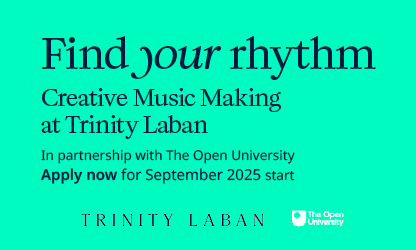Insiders Anonymous: The conductor of amateur orchestras
It’s easy for conductors starting their careers to regard amateur orchestras as a step en route to the inevitable glory of the Berlin Philharmonic. Some people probably don’t even consider conducting amateurs a possibility. But I cut my teeth with this early on and I started to realise that I enjoyed it more than conducting professionals.
Partly that might be because there’s less pressure. But I think there’s a huge satisfaction to be gained from starting with something that isn’t all that good and bringing it up to a certain level; one’s influence can be greater on the finished product. And it’s nice to be working with musicians who love the music. The old-fashioned definition of ‘amateur’ is: people who love the music. This isn’t to say that professional orchestras don’t – but they do wear people down.
It’s easy, too, to use the word ‘amateur’ as something derogatory – as in: ‘That was amateurish’. In my utopian ideal, we’d dispense with the words ‘professional’ and ‘amateur’ – there’s a huge grey area. A lot of the people I conduct might be music teachers or semi-professional players, doing paid gigs at the weekend as well as holding down other jobs and playing in a couple of amateur orchestras a week. Many are incredibly competent musicians; their day jobs might be as an architect or a doctor or somewhere in the music business, but they play to a professional standard. I once did a concerto with a reasonably prominent soloist and he turned to me at the end of the first rehearsal and said, ‘God, these people have real jobs – and they play this well!’ That’s humbling.
We prepare four concerts a year, rather than a hundred, and meet once a week to build up to a concert over a couple of months. That has its pros and cons. Of course people do forget what’s been said in the previous week – but you have to remember that they’ve come from sitting in an office at a computer for seven hours and they’ll need a bit of time to settle in to it. So it’s been good for my patience – with which I was not much endowed when I was younger!
Obviously if the audience has a choice between the LSO at the Barbican and us at the local church, for the same price, there’s no competition. But in a way the amateur orchestras exist not for the audience but for themselves. Those 50 or 70 people are deriving huge pleasure from playing and sometimes they’re taking on things that could be beyond them. A lot of the core repertoire presents technical difficulties galore, which they won’t necessarily overcome. But the satisfaction of getting a piece of music up to a certain standard, trying to make something that’s bigger than the sum of its parts, is enormous.
Choosing repertoire, I tend to overstretch rather than understretch them – I think it’s better for them to be playing great music, in preference to something that is more manageable but won’t be rewarding across eight or nine weeks. You do have to know the limits. I veer towards doing things that are too difficult – and we get away with it most of the time. One of my chief frustrations might be realising half way through the third rehearsal that I’ve overstretched them too much with a piece.
Other frustrations might be matters like people not paying attention and nattering in rehearsal. But when I reflect on it afterwards, I realise it’s partly my fault: if they’re not listening to me then I must find things that are worth saying, or say them in a way that makes them listen.
Sometimes some of the players might get nervous at the concert; sometimes people might be a little bit upset; so you just try and give them confidence. A comment I’ll always remember was a moment in rehearsal when I was trying to encourage the violas to play out in a solo passage in Dvorák’s New World symphony. I said: ‘Come on violas, I’m sure you can make more noise than that – after all, what’s the worst that can happen?’ And in the back desk, someone piped up: ‘You might hear us.’
But one of the chief lessons I take away from it all is that people can achieve more than they think they can. The vibe when something’s gone well is amazing. You always remember the look on people’s faces as they say: ‘We did it! We played Sibelius Two!’
This article was originally published in the November issue of Classical Music magazine, a Rhinegold Publishing title. Find out more about Classical Music at www.classicalmusicmagazine.org or subscribe at rhinegold.subscribeonline.co.uk



